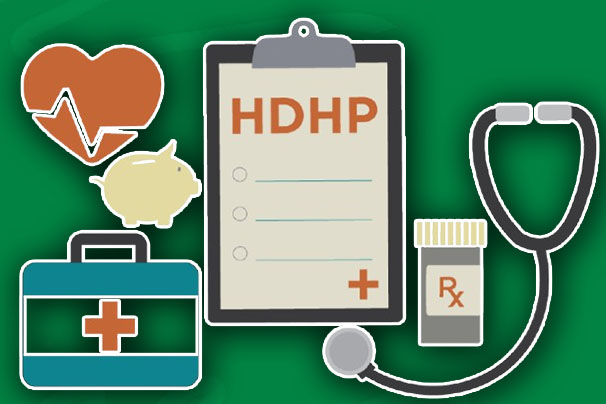Should you get a high-deductible health plan or a low-deductible insurance plan? This is a common question policyholders ask when determining what health insurance plan they need. High-deductible health plans often carry lower insurance premiums but require more out-of-pocket payments, which must be made before the policy resumes debt payment.

Health insurance plans with lower deductibles carry higher premiums and more generous coverage as well as low deductibles. When purchasing health insurance for the first time or renewing your existing coverage, it is important to consider what health plan is best for you. During this process, you may wonder if a high-deductible health plan is a good idea or not.
What is a High-Deductible Health Plan?
Compared to a standard low-deductible health plan, a high-deductible health plan requires policyholders to pay more on medical bills out of pocket before the insurance company resumes coverage for the outstanding costs. This out-of-pocket payment made is referred to as a deductible. While it comes with higher deductibles, it requires lower premiums.
Each month, you pay a lower deductible but a greater part of the amount of out-of-pocket health care bills if they occur. Also, high-deductible health plans have higher deductible maximum limits. Once the limit is exceeded, the insurance company takes over the overall payment for the rest of the year.
Is a High-Deductible Health Plan a Good Plan?
While this plan requires you to pay more deductibles, one of its benefits is that you pay fewer premiums. This option is good if you are healthy, remain healthy, and never need to pay your deductible or reach the maximum deductible limit.
Also, this plan may cover some preventive care like immunizations, yearly physicals, and screenings. If you are in a family health plan, your coverage may cover well-child visits every year. Another advantage of this insurance is that qualified plans offer HSAs to manage health care costs.
Advantages and Disadvantages of a High-Deductible Health Plan
There are different reasons why you may decide to or not opt for a high-deductible health plan. Understanding the benefits and downsides of a high-deductible health plan helps you determine whether or not it is a good idea for you.
Advantages:
- Lower Premiums: This plan costs less on premiums monthly than traditional health insurance plans with low deductibles.
- Capacity to use an HSA: If you have a qualified HDHP, you are qualified to put thousands of pretax funds into an HSA, which can be used to cover medical expenses over the years. These funds in your HSA can be invested and grown over time.
- Employer Contribution: More than the average of the employers offering this insurance make contributions against their workers’ HSAs.
- Disadvantages:
- High Initial Care Cost: Policyholders who have chronic illnesses or seek recurrent healthcare beyond preventive visits may end up paying more out-of-pocket payments. However, an employer contribution can help you pay the upfront bills.
- Higher deductibles in the event of a disaster: Health insurance is primarily taken to shield you in the event of a serious illness, but you must be ready to pay more out of pocket for your entire deductible if an unexpected event happens.
Is a High-Deductible Health Plan Best for You?
While a high-deductible health plan is a very good option for some healthcare customers, it may not be the best option for everyone. However, a high-deductible health plan may be best for you if you meet the following:
- You can afford to pay your deductible beforehand or within 30 days after receiving the bill.
- If you intend to use HSA as a means of investment or savings.
- If you rarely need medical care for injury or illness.
- If your employer’s HSA contribution is not sufficient to cover most of your deductible.
- If you can make notable contributions to an HSA.
Irrespective of which category you fall into, you can say this health plan is best for you. However, if you cannot pay more deductible or you are managing a serious illness, the high-deductible health plan is not a good idea.
Why Having a Higher Deductible Reduces Your Premiums
Premiums and deductibles balance each other out. Low premiums mean higher deductibles and high premiums mean low deductibles. Both the policyholder and the insurer carry some level of risk in this type of health plan.
Selecting one type of plan over the other allows you to decide where you can save more. However, while measuring your risks, you should also think about your budgeting proclivity.



